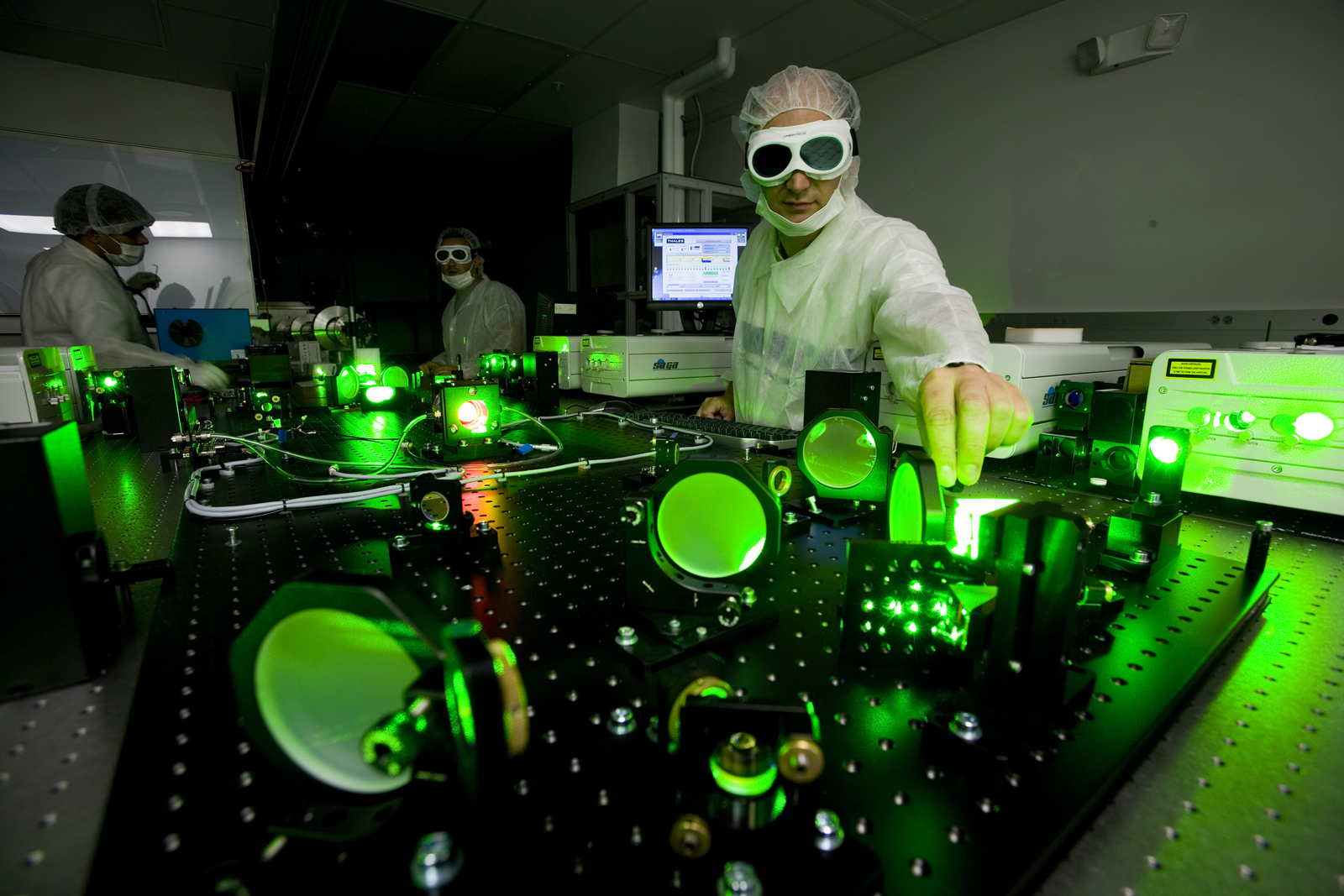
An initial contract worth up to $84 million over the next five years will allow University of Nebraska researchers to work on U.S. military projects and could transform the university into a major player in national scientific and medical research.
The contract was announced Oct. 11 by James B. Milliken, NU president; and Gen. C. Robert Kehler, commander of U.S. Strategic Command.
The partnership between NU and the United States Strategic Command, based at Offutt Air Force Base, created a University-Affiliated Research Center. The UARC will serve as a primary research and development center that supports U.S. Strategic Command missions to deter and detect strategic attacks against the United States and its allies, and to defend the nation as directed.
Through the UARC — housed in the university’s National Strategic Research Institute, approved in May by the NU Board of Regents — the university will provide research and development services for StratCom in areas of demonstrated strength. These areas, which are critical to national security, include: nuclear detection and forensics, detection of chemical and biological weapons, passive defense against weapons of mass destruction, consequence management, and space, cyber and telecommunications law.
The UARC is a universitywide initiative, drawing on a broad range of expertise from all four NU campuses. Faculty will have the opportunity to participate if their research aligns with federal funding opportunities. Their work will be solutions-oriented, geared toward meeting – and ultimately anticipating – StratCom’s needs.
“I’m thrilled to support (StratCom) and the United States on important issues related to national security," said Prem Paul, vice chancellor for research and economic development. "Through the UARC, we look forward to leveraging UNL’s tremendous research strengths in science and engineering and the social sciences.”
Milliken said nearly 100 NU faculty have been identified as having research that could align with the new center. That list includes UNL nanoscience researchers and the Diocles Extreme Light Laboratory team. UNL faculty immediately involved in the project include Donald Umstadter, professor of physics and astronomy and director of the Diocles lab; Matt Schaefer, professor of law and director of the Space, Cyber and Telecommunications Law program; and Mario Scalora, professor of psychology.
"The UARC is particularly exciting because it allows our researchers to provide support for StratCom's missions of developing strategies for the deterrence and dissuasion of our evolving adversaries," said Scalora. "While the university has engaged in numerous defense-related projects over the years, the UARC will open more doors for collaborative opportunity — helping Nebraska to become that much more competitive for DoD funding against other universities and private firms in the D.C. beltway."
Umstadter said the award has the potential to offer new opportunities for NU researchers.
"The UARC will give NU scientists like myself the opportunity to take the next step toward translating their academic research into real-world technologies."
Schaefer said the College of Law's Space, Cyber and Telecommunications Law program has been working with the U.S. military since it was founded. He said the DoD contract would expand those interactions.
"The UARC will allow the program to further fulfill U.S. government needs through additional research, conferences and training programs," Schaefer said. "Since military space, civil space, and commercial space activities all have national security implications, the program will continue to focus on issues facing all these arenas of space activity.
"Similarly in the cyber domain, the interconnectedness of government and commercial operations will mean that the program will continue to serve as a forum bringing together experts from the military, civil government, and the private sector.”
Research and Economic Development is hosting a UARC Faculty Forum, 11:30 a.m. to 1 p.m. Oct. 17 in the Nebraska Union Heritage Room. The event is open to all UNL faculty. For more information or to register, go to http://go.unl.edu/6gp.
Only 14 U.S. institutions, including the University of Nebraska, host a UARC. All UARCs are affiliated with leading research universities, including the Massachusetts Institute of Technology, Johns Hopkins University, Penn State University and others. Those universities are among the national leaders in research and development expenditures financed by the Department of Defense; the top tier also includes prestigious institutions such as the University of Michigan, Stanford University and the University of Illinois.
“The UARC is a tremendous distinction for the University of Nebraska which recognizes the outstanding capabilities of our faculty,” said Milliken. “The impetus for the university’s participation in the UARC is much like that of our other university-wide initiatives, such as water and food security, early childhood education and rural futures: that a 21st-century land-grant university should be addressing in a significant way the great challenges facing the world. This new UARC and the research it supports will be good for the university, the state and our nation.”
Robert Hinson, who retired from the U.S. Air Force at the rank of Lieutenant General after serving for 33 years, is the founding executive director of NU's National Strategic Research Institute.
“It’s not often one gets the opportunity to be on the leading edge of such an exciting new venture as the National Strategic Research Institute,” Hinson said. “I’m very excited about being involved in this UARC, promoting the exceptional research capabilities of the university, and delivering potential solutions to some of the most challenging missions of (StratCom). I believe the University of Nebraska, through this UARC, is well-positioned to grow as one of the best research and development programs in the country.”
The University of Nebraska's role in Department of Defense research has grown in recent years, from $7.3 million in 2000-2001 to $34.8 million in 2010-2011.